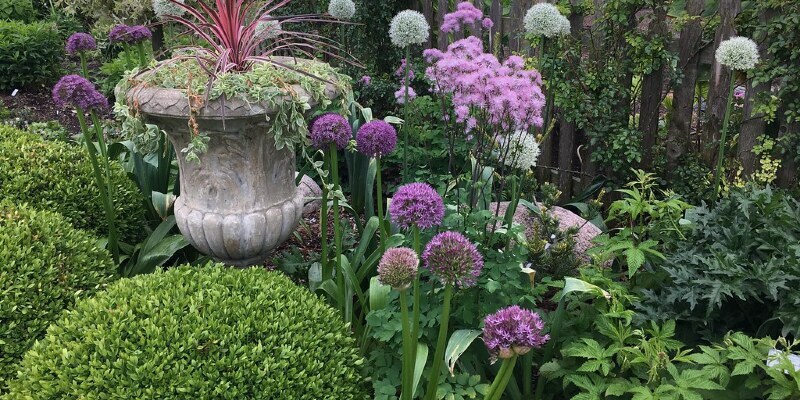Horses & Honeysuckle Plants

Turning your horse out to pasture for a couple of hours a day provides not only exercise, but important savings in feed costs also. But horses allowed to munch freely could sometimes come in contact with plants which are poisonous, which makes it vital that you know what rises where your horse roams. Fortunately, the numerous varieties of honeysuckle are not known to be severely poisonous to horses.
Honeysuckle Facts
Honeysuckle often grows as a growing plant and some varieties as shrubs. You will find both deciduous and evergreen species. The flowers are tubular or trumpet-shaped and generally come in colours of yellow, white to orange or red to purple. Honeysuckles are often sweetly scented, attracting birds, butterflies and sometimes creatures. According to The Merck Veterinary Manual, honeysuckle isn’t on the list of plants poisonous to horses. The Lonicera periclymenum – L. number of honeysuckle is, however, listed as toxic on the “Plant For A Future’s” plant database only in large amounts and with only mild reaction.
Varieties of Honeysuckle
Many varieties of honeysuckle grow around the world, and some are far more commonly found in which you might keep your horses. The well-known varieties listed here are sometimes grown against walls or fences in which horses can reach them as they are grazing or if they are grown near stalls. “Gold Flame” honeysuckle (Lonicera heckrotii) flowers from July to August and is a deciduous, shrubby plant using yellow-orange flowers and red shading. Coral honeysuckle (Lonicera sempervirens) is an evergreen climber with summer clusters of red, tubular flowers followed by bright-red berries. “Dropmore Scarlet” honeysuckle (Lonicera brownii) is a deciduous vining plant which produces fragrant, bright red flowers, blooming late spring through mid-summer.
Plants Poisonous to Horses
It is essential to be well informed regarding plants which are genuinely poisonous threats to your horses. Some plants such as water hemlock (Cicuta spp), that rises in a moist or moist environment, can kill any creature within 15 to 30 minutes of ingestion with no treatment. Red maple (Acer rubrum) grows in moist ground or swampland and is recorded as only deadly to horses. Effective treatment is unusual. Oaks (Quercus spp.) Grow in several locations and are poisonous to all grazing animals, but most often affect cattle. Treatment is symptomatic, which means it treats the symptoms but not the root cause of those. The Merck Veterinary Manual contains a very long list of plants know to be toxic to horses, and the ASPCA has a listing available for online viewing.
Unique Factors
Varieties of Japanese honeysuckle (Lonicera japonica) are not suggested for planting, because they are an invasive species easily capable of taking over large areas of territory, choking out native plant life and habitats. They are desirable from the cosmetic sense, but planting them might cause a rift between you and neighborhood conservation agencies.